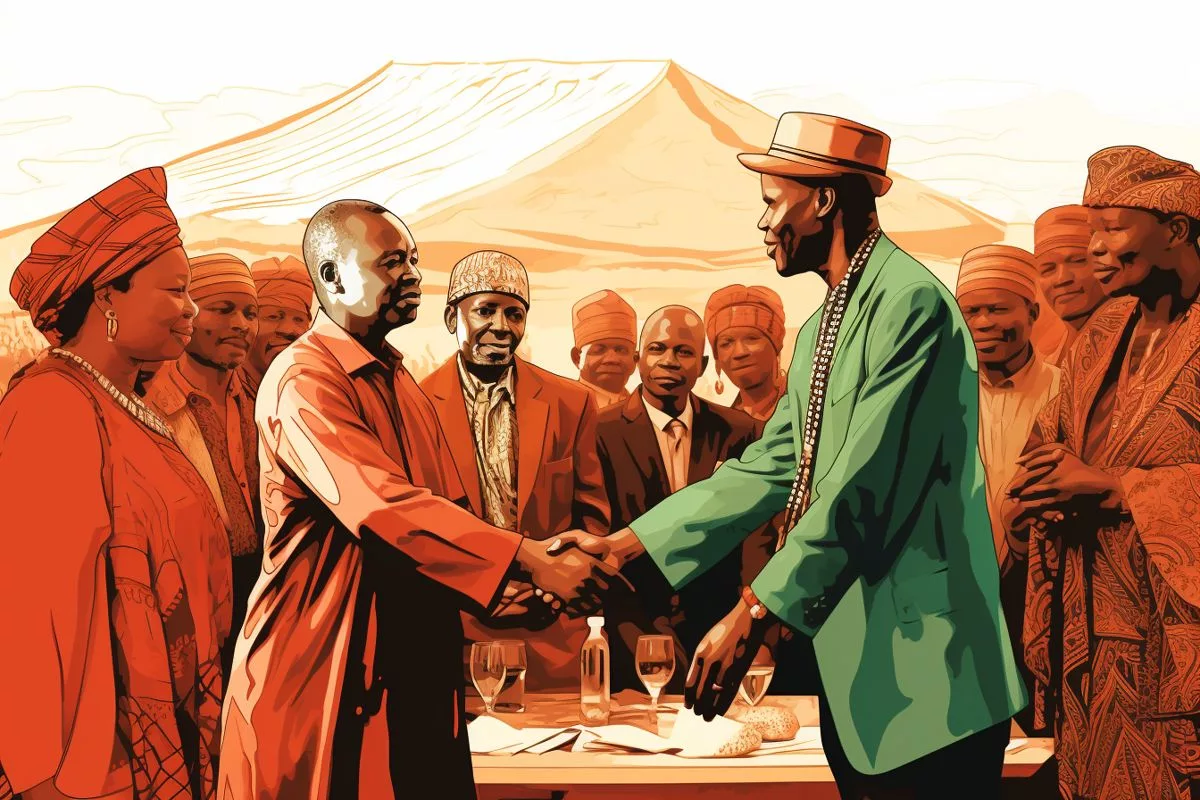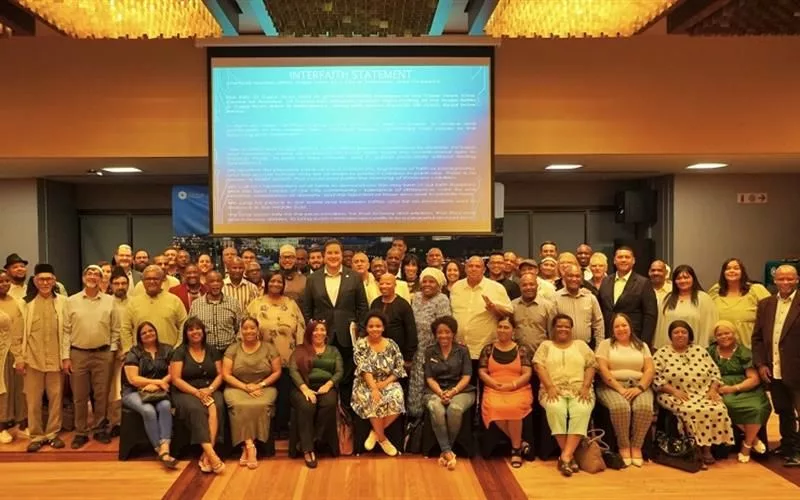The Mzimvubu Water Project in South Africa aims to provide clean water to rural communities in the Eastern Cape. Traditional leaders play a crucial role in executing this large-scale project, which has already begun with the construction of the Ntabelanga Dam. The project bridges the gap between rural and urban areas and ensures access to clean water, asserting the constitutional human rights of these communities. Collaboration and transparency are key to the project’s success, and it represents a new beginning for the government’s dedication to a fair and inclusive future.
What is the Mzimvubu Water Project in South Africa?
The Mzimvubu Water Project is a multi-billion rand initiative that aims to provide clean, drinkable water to rural communities in the Eastern Cape of South Africa. Traditional leaders play a crucial role in executing this large-scale project. The project’s estimated cost has been reduced from R18 billion to R8 billion, and the Ntabelanga Dam’s construction has already begun. The project ensures that rural communities have access to clean water and bridges the gap between rural and urban areas.
The Harmony of Tradition and Progress
The intricate balance between advancement and tradition in South Africa has found its rhythm within the rich culture of the Eastern Cape. The Mzimvubu Water Project, a multi-billion rand initiative, has brought attention to the crucial role traditional leadership plays in executing such large-scale and significant projects.
Nestled along the banks of the Tsitsa River in the Joe Gqabi District, the Mzimvubu Water Project stands as more than just a beacon of progress. It embodies the power of collaboration and unity between the government and traditional leaders.
The Water and Sanitation Minister, Senzo Mchunu, recently stressed the pivotal part that local traditional leaders will play in this significant undertaking. His statement was made during a stakeholder meeting at the Ntabelanga Dam Site Camp in Sqhungqwini Village, which further confirmed the integral involvement of these leaders in this path of progress and growth.
Revival of the Mzimvubu Water Project
The Mzimvubu Water Project, which remained a dormant dream for a long time, has been reignited after enduring years of delay. Minister Mchunu brought the project back into the spotlight during his Budget Vote earlier this year, promising a more cost-effective, redesigned solution that will benefit the communities under the traditional leadership. The project’s estimated cost has been slashed from R18 billion to R8 billion, marking a substantial victory for financial efficiency.
At the core of this project is the Ntabelanga Dam, the construction of which has commenced in the serene Ntabelanga mountains. This area lies between the Elundini and Mhlontlo Local municipalities. The dam’s construction is set to impact several communities, thus necessitating their active involvement through their respective traditional leaders.
A stakeholders’ meeting, involving eminent figures such as the King of AmaMpondomise, Kumkani Luzuko Matiwane, and the Chief of Elangeni, Inkosi Siyasanga Mabandla, provided the opportunity for dialogue on the project’s implications for local communities. Key topics included land development, infrastructure, and relocation and compensation for those affected.
Collaboration and Transparency: Key to Success
To foster transparency and fairness, and to prevent any unnecessary interruptions and delays, the establishment of a Political Steering Committee was proposed. This committee, to be jointly chaired by Minister Mchunu and the Premier of the Eastern Cape, Oscar Mabuyane, will comprise a diverse group of stakeholder representatives. From Deputy Ministers of Water and Sanitation to representatives from the impacted traditional councils, this committee will ensure that everyone’s voices are considered.
The project extends beyond the construction of a dam or a water treatment plant. It stands as a testament to the government’s commitment towards rural communities. It ensures that these communities, like their urban counterparts, have access to clean, drinkable water, thereby asserting their constitutional human rights. Thus, the project plays a crucial role in bridging the rural-urban gap.
The Mzimvubu Water Project is a sign of a new beginning. It mirrors the government’s dedication to rectifying past mistakes and guaranteeing a more inclusive and fair future. It reflects a readiness to learn from previous failures and a determination to build resilient systems that can withstand future challenges.
As the project continues to unfold, it will shape the intricate relationship between progress, tradition, and governance. It is likely to serve as a case study for future undertakings of this kind, highlighting the importance of traditional systems in South Africa’s development agenda.
The Mzimvubu Water Project truly epitomizes the spirit of collaboration, proving that progress and tradition can coexist and mutually enrich each other. It symbolizes the journey of progress, the power of unity, and the nation’s commitment to improving the lives of all its citizens.
1. What is the Mzimvubu Water Project in South Africa?
The Mzimvubu Water Project is a multi-billion rand initiative that aims to provide clean, drinkable water to rural communities in the Eastern Cape of South Africa. Traditional leaders play a crucial role in executing this large-scale project.
2. What is the estimated cost of the Mzimvubu Water Project?
The project’s estimated cost has been reduced from R18 billion to R8 billion, and the Ntabelanga Dam’s construction has already begun.
3. What role do traditional leaders play in the Mzimvubu Water Project?
Traditional leaders play a crucial role in executing the Mzimvubu Water Project, which aims to provide clean water to rural communities. Their involvement ensures that the communities have access to clean water and bridges the gap between rural and urban areas.
4. What is the Political Steering Committee proposed for the Mzimvubu Water Project?
To foster transparency and fairness, and to prevent any unnecessary interruptions and delays, the establishment of a Political Steering Committee was proposed. This committee, to be jointly chaired by Minister Mchunu and the Premier of the Eastern Cape, Oscar Mabuyane, will comprise a diverse group of stakeholder representatives.
5. What is the significance of the Ntabelanga Dam in the Mzimvubu Water Project?
The Ntabelanga Dam is at the core of the Mzimvubu Water Project, and its construction has already begun. The dam’s construction is set to impact several communities, thus necessitating their active involvement through their respective traditional leaders.
6. What does the Mzimvubu Water Project represent for the government of South Africa?
The Mzimvubu Water Project represents a new beginning for the government’s dedication to a fair and inclusive future. It symbolizes the journey of progress, the power of unity, and the nation’s commitment to improving the lives of all its citizens.








